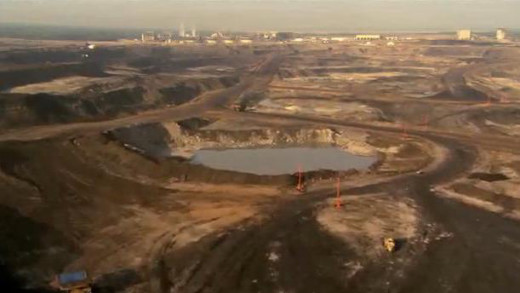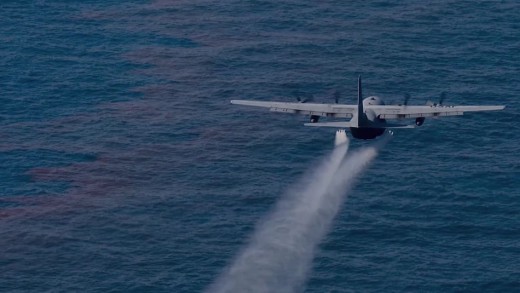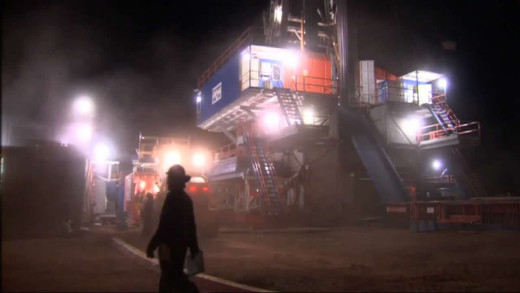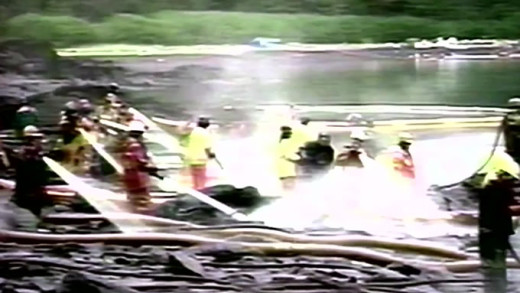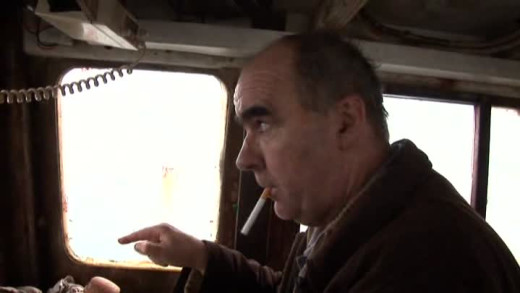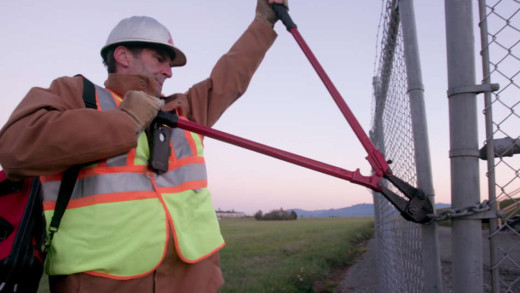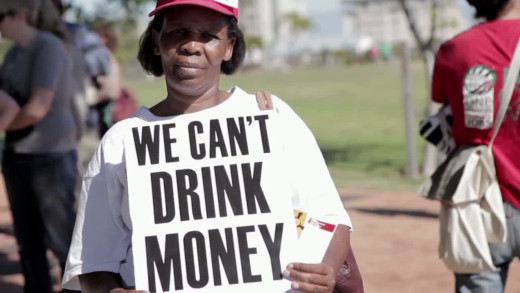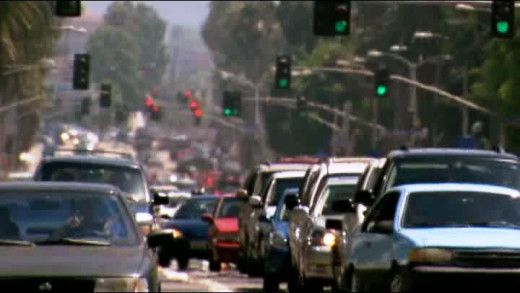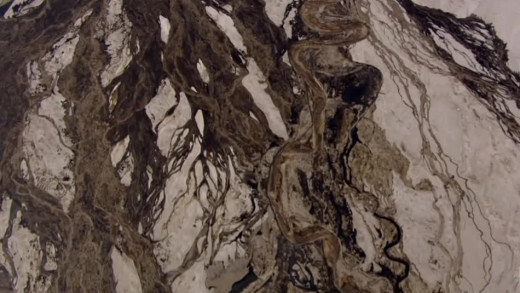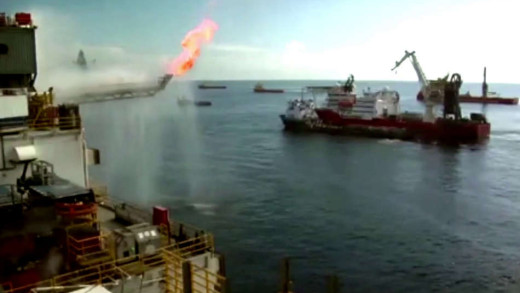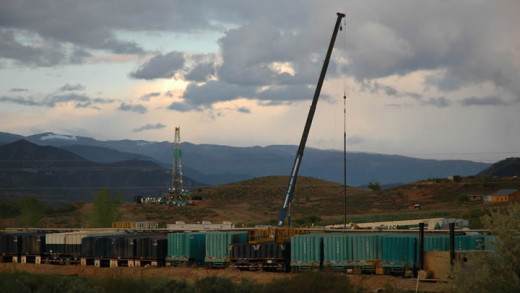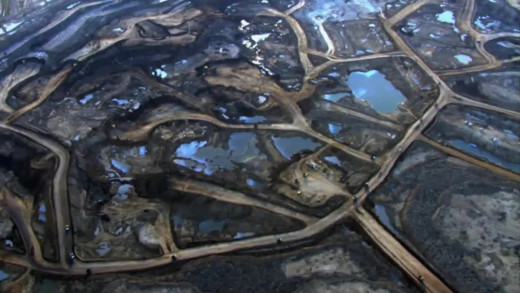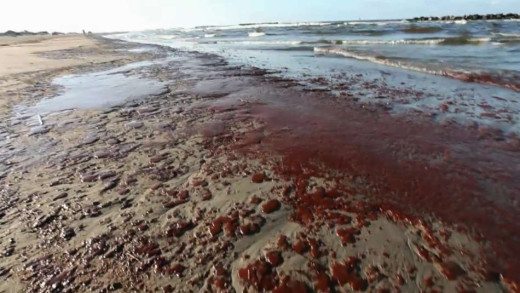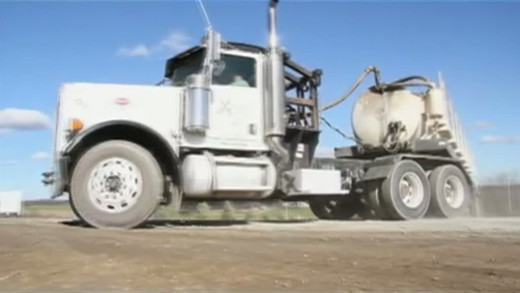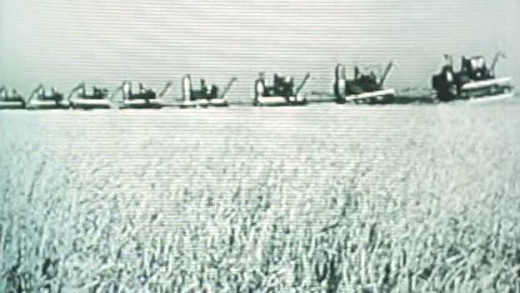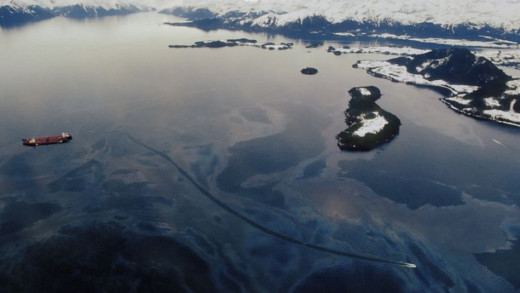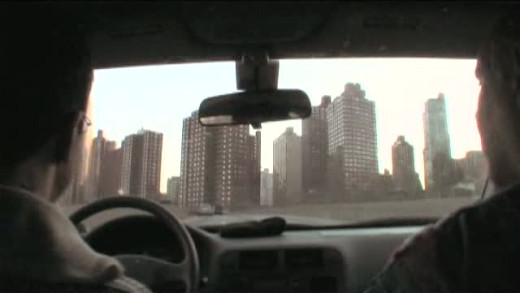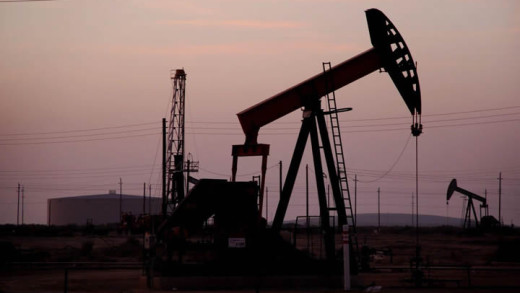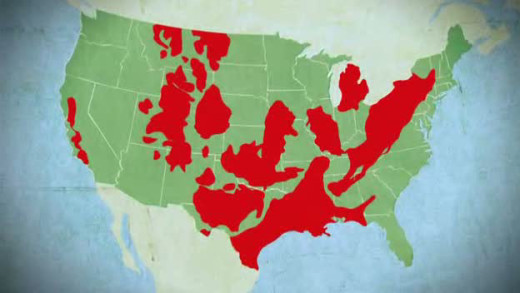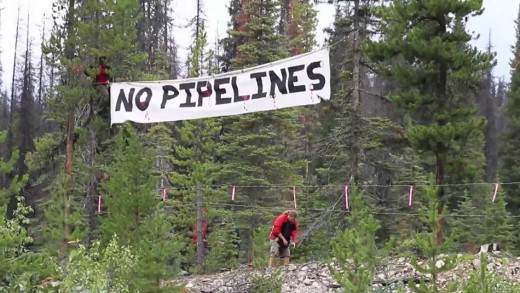h2Oil
Canada is now the biggest supplier of oil to the United States, thanks to the Alberta tar sands—a controversial billion-dollar project to extract crude oil from bitumen sands, using a very toxic process that has generated international cause for concern. Four barrels of glacier-fed spring water are used to process each barrel of oil, along with vast amounts of electricity. The waste water is dumped, filled with carcinogens and other chemicals, into leaky tailings ponds so huge that the piles can be seen from space. Downstream, people and communities are already paying the price with contaminated water supplies and clusters of rare cancers. Evidence mounts for industry and government cover-ups. In a time when wars are fought over dwindling oil and a crisis looms over access to fresh water, which will we allow to turn out to be more precious to us?
Pretty Slick
Pretty Slick reveals the untold story of BP's coverup following the 2010 Deepwater Horizon oil explosion in the Gulf of Mexico. The explosion is known as one of the largest environmental catastrophes in the history of the United States, but what is not well-known is that BP, along with government approval, used toxic chemicals to sink the oil in the water rather than clean it up, using a controversial chemical dispersant called Corexit. Because of this, it is estimated that approximately 75% of the oil, or over 150 million gallons, is still unaccounted for. When filmmaker James Fox learned of this, he began a three year investigation to find out about the dispersant use and its coverup. Pretty Slick reveals how public safety and environmental health took a backseat to restoring the economy, and along the way exposes the collusion between big oil and the United States government in these happenings.
Spreading beneath Southlake in Texas, and a chain of other areas throughout, is an oil and gas rich Eldorado called the Barnett Shale field. Mining and energy companies are literally stampeding for a piece of the action with gas drilling and wells sweeping across the United States. Meet The Frackers travels through North America's suburban heartland to show the impact of a process called fracking, which is taking place on a panoramic scale. The parallels apply to Australia and elsewhere, where fracking is also spreading rapaciously with the drive to exploit sources such as coal seam gas. There's many warnings to be heeded from the ecological impact that's already been catastrophic throughout the United States, as one can see...
Supported by a mix of archival footage, NASA shots of burning oil fields and historical film excerpts, Crude Awakening examines peak oil. From Houston to Caracas, the Lake of Maracaibo, the Orinoco delta, Central Asia's secretive republic of Azerbaijan with its ancient capital Baku and the Caspian Sea, to London and Zürich. The film questions the future of oil with leading authorities such as oil investment banker Matthew Simmons, former OPEC chairman Fadhil Chalabhi, Caltec's head of physics, Professor David Goodstein, Stanford University political scientist, Terry Lynn Karl and peak oil expert, Matthew Savinar...
Stop the Flows is a media project in progress to document resistance movements around the world that are working towards stopping the flows of oil and gas, minerals and other natural 'resource' extraction from within their communities, territories and landbases; as well as stopping the flow of the tremendous amounts of wealth generated from these destructive activities. This series aims to support and capture the many forms of organising, direct-action, protest and resistance movements throughout the world working to end mining, the oil economy, nuclear power and more...
The Pipe tells the story of the people in Rossport, Ireland which have taken on the might of Shell Oil building a pipeline through their community. But when these people look to the government to protect their rights, they find that the government protects Shell instead. The question then becomes: what do people do, when the law prevents them from protecting themselves?
If a crime is committed in order to prevent a greater crime, is it excusable? Is it, in fact, necessary? The Reluctant Radical follows Ken Ward as he confronts his fears and acts on these questions to stop climate change. After twenty years leading some of the most renowned mainstream environmental organisations, Ken witnesses first-hand how ineffective and unthreatening they are. As their efforts fail, and environmental collapse increases in scope and speed, Ken comes to see how direct action civil disobedience is the most effective political tool to deal with catastrophic circumstances. Ken breaks the law, to fulfil his obligation to future generations, to stop the oil economy. By following Ken for a year and a half through a series of direct actions, this film culminates with his participation in the coordinated action that shut down all the tar-sands oil pipelines in the United States on October 11, 2016. The film reveals the personal costs but also the true fulfilment that comes from following one's moral calling, even if that means breaking the law and its consequences. Ken has no regrets.
Sales pitches and PR for gas drilling are quick to dismiss claims that gas drilling and hydraulic fracturing processes are controversial. The direct evidence on the ground throughout the United States tells a different story however -- toxic chemical spills, gas leeching, contaminated water supplies throughout the country, as well as many documented cases of ill health and sickness. As energy companies look to frack elsewhere outside the United States -- in Europe, South Africa, Australia -- The Fracking Façade provides yet more timely evidence of the warnings to heed from fracking and it's devastating ecological impact so far...
Crude Impact examines the interconnections of human economic activity, the use of fossil fuels and the effects that these have on the environment, the climate and humanity. What is peak oil? And what does this mean of the issue of global warming? The film also investigates the questionable practices of oil companies, to which there are plenty of examples...
Petropolis
Canada's tar sands are the largest industrial project ever undertaken--spanning the size of England. Extracting the oil and bitumen from underneath unspoiled wilderness requires a massive industrialised effort with far-reaching impacts on the land, air, water, and climate. It's an extraordinary industrial spectacle, the true scope of which can only be understood from an aerial view. Shot primarily from a helicopter, Petropolis: Aerial Perspectives on the Alberta Tar Sands offers an unparalleled view of the world's largest ever industrial project...
We Are Traffic
We Are Traffic chronicles the history and development of the "Critical Mass" bicycle movement -- one of the most dynamic social political movements of the apathetic 90s. In over 200 cities in 14 different countries, Critical Mass has now become a monthly ritual of reclaiming the streets by bicycle activists riding en masse...
On 20th April 2010, the Deepwater Horizon oil rig exploded off the Gulf of Mexico in the United States, killing eleven workers, and spewing millions of barrels of oil into the ocean for weeks. Dirty Energy brings to light the personal stories of the Louisiana fishermen and local residents directly impacted by one of the worst environmental disasters in recent history, as they struggle to rebuild their lives and contend with emerging health crises related to the toxic dispersants used to clean up the explosion.
Exempt from environmental protection laws, the oil and gas industry has left idyllic landscapes and rural communities throughout the United States pockmarked with abandoned homes, polluted waterways and aquifers, as well as plenty of sick people. Split Estate zeroes in on Garfield County in Colorado, and the San Juan Basin where more demonstrations of water that can be set on fire are found, but industry isn't just stopping there -- fracking is spreading across the United States, with plans to even drill in the New York City watershed, as well as elsewhere around the globe. As the appetite for fossil fuels increases, Split Estate debunks claims by an industry that assures the public that it is a good neighbour, driving home the need to stop fracking, both here and abroad...
The suburbs are an unsustainable way of living. Developed in the post-war era of cheap oil and the car, the lifestyle was spruiked as the 'escape' from the industrial city to a more pastoral and rural way of life. However, they quickly evolved into a place that had neither of these qualities. Now, part of the problem of getting out of the suburban mentality is that a generation has grown up believing it to be a 'normal way of life' and even a life of entitlement, something which they will not give up without a fight...
The small town of Fort Chipewyan in northern Alberta, Canada, is facing up for the fight against The Alberta oil sands, which is arguably now the world's largest construction project. Its expansion will have an estimated $1.7 trillion impact on the Canadian economy over the coming decades. An area of boreal forest the size of Greece will be affected by industrial activity. Once again the issue is water, but this time it is not just the flow of the river, but the chemicals the current may be carrying downstream from the strip mines and bitumen upgraders. In recent years, Fort Chipewyan has experienced an unusually high rate of cancer. Local fishermen are finding growing numbers of deformed fish in their nets. Residents and the community doctor, worry there could be a connection to the oil sands...
From styrofoam cups to artificial organs, plastic is perhaps the most ubiquitous and versatile material ever invented -- no product in the past 100 years has had more a profound influence and presence than synthetics. But such 'progress' has a cost -- no ecosystem or segment of human activity has escaped the strangling grasp of plastic. Addicted To Plastic investigates what we really know--and don't know--about this material. Talking to manufacturers, recyclers, cleaners, scientists and others, Addicted To Plastic shows plastic's toxic legacy and devastating ecological impact, provoking serious questions about health, food and the environment...
Ecocide
On April 20th 2010, a massive oil rig exploded in the Gulf of Mexico. It was called the Deepwater Horizon rig, operated by the BP corporation. The resulting fire claimed the lives of eleven workers, while the exploding oil well spewed over 4.2 million barrels of oil into the sea over 82 straight days, killing the ocean and millions of animals. The disaster is considered the worst environmental catastrophe in the history of the United States. Ecocide profiles the disaster through the residents of Grand Isle, the last inhabited barrier island off the coast of Louisiana, United States, who thought they were living in paradise until the BP oil explosion hit their shores. Through the lived experiences of this island community, we see the devastating repercussions of the explosion, several years later, that continue to this day.
Fracking Hell -- The Untold Story looks at the risks of natural gas development in the Marcellus Shale throughout the United States. From toxic chemicals in drinking water to interstate dumping of radioactive waste that cataclysmically contaminates water supplies, to fracking plans in major population centres including New York City -- are the health consequences worth the supposed economic gains?
Collapse
Collapse is a documentary film exploring the theories, writings and life story of controversial author Michael Ruppert, a former Los Angeles police officer turned investigative reporter who has authored books on the events of the September 11 attacks, documented widespread drug trafficking and other secret operations by the CIA, and written on the issue of peak oil and other energy issues. Using archival footage interspersed as illustration, Collapse explores Ruppert's conclusions that unsustainable energy and financial policies have led to an ongoing collapse of modern industrial civilisation...
In the early hours of March 24th 1989, the Exxon Valdez oil supertanker runs aground in Alaska. The ship discharges several tens of millions of gallons of crude oil. The incident becomes the biggest environmental assault in North American history, and in a flash, the news shoots across the planet along with footage of thousands of dead seabirds, sea otters and other marine life covered in oil, devastated. Thick black tides rise and cover the beaches of the once-pristine reefs of Alaska. Black Wave recalls this event, a generation later, by speaking with renowned marine toxicologist Riki Ott and the fishermen of the little town of Cordova, Alaska. They tell us all about the environmental and social consequences of the black wave that changed their lives forever—the legacy of the Exxon Valdez that still lingers today.
Following up from The End Of Suburbia, this film examines the rich interplay on the subtle relationships between the energy crisis, neighbourhood gardens and the collapse of the 'American dream'. Escape From Suburbia outlines potential solutions with interviews from individuals across the world who are brave enough to challenge their communities toward change...
Can't Get You Out of My Head: An Emotional History of the Modern World is a six-part series that explores how modern society has arrived to the strange place it is today. The series traverses themes of love, power, money, corruption, the ghosts of empire, the history of China, opium and opioids, the strange roots of modern conspiracy theories, and the history of Artificial Intelligence and surveillance. The series deals with the rise of individualism and populism throughout history, and the failures of a wide range of resistance movements throughout time and various countries, pointing to how revolution has been subsumed in various ways by spectacle and culture, because of the way power has been forgotten or given away.
Energy War considers the continuing geopolitical consequences of the dependency on fossil fuels into the future. In the struggle for the last of the resources, countries all over the world are forced to further strategise and make strange alliances. Using the gas conflict between Georgia and Russia and the position of Saudi Arabia, Energy War travels through international markets for energy and asks: If oil and gas are scarce and expensive, where will countries turn to keep their economy going and their population warm and happy?
America's largest domestic natural gas drilling boom is in full swing and the Halliburton corporation claims it has refined a technique called 'hydraulic fracturing' that extracts natural gas in a "safe and environmentally friendly way". But upon examination, film-maker Josh Fox uncovers a trail of secrets, lies and first-hand evidence of intense water contamination and devastating environmental destruction...
For the past four years Submedia has been visiting a camp of the Unist'ot'en of the Wet'suet'en Nation in so-called British Columbia in Canada. The Unist'ot'en continue to fend off intrusions to their land by rapacious oil and gas companies. The threats are large and systemic and involve the very base of life itself. This two-part series of short films document the direct actions that are effective in keeping the threats of oil and gas out. Stopping the corporations physically is paramount, as they'll stop at nothing...
